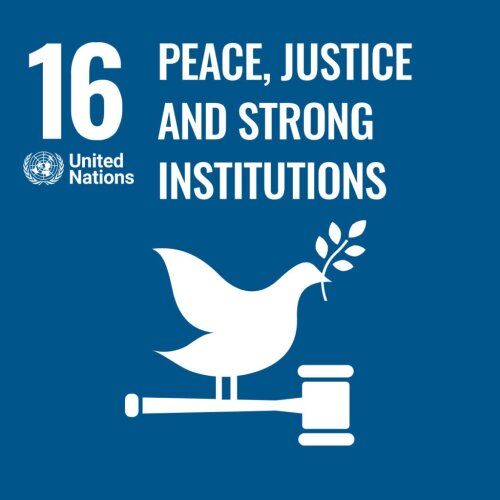Best Due Diligence Lawyers in Port of Spain
Share your needs with us, get contacted by law firms.
Free. Takes 2 min.
List of the best lawyers in Port of Spain, Trinidad and Tobago
About Due Diligence Law in Port of Spain, Trinidad and Tobago
Due diligence is an essential legal process that involves conducting a thorough investigation and assessment of a person or entity before entering into a business transaction or contract. In Port of Spain, Trinidad and Tobago, due diligence provides valuable information and protects your interests by ensuring that you are fully informed and aware of any potential risks involved.
Why You May Need a Lawyer
Seeking legal advice from a lawyer experienced in due diligence is highly recommended in several situations. Some common instances where you may require legal help in due diligence include:
- When purchasing or selling property or real estate
- Before entering into a business partnership or investment
- When acquiring or merging with a company
- Before entering into contracts with suppliers, contractors, or service providers
- When engaging in financial transactions or obtaining loans
Local Laws Overview
In Port of Spain, Trinidad and Tobago, there are several key aspects of local laws that are particularly relevant to due diligence:
- Companies Act: This legislation governs the incorporation, operation, and administration of companies, including requirements for disclosures, audits, and financial statements.
- Property Law: These laws govern the purchase, sale, and ownership of property, including the registration process, rights and obligations of parties, and potential encumbrances or restrictions.
- Contract Law: The principles of contract law are crucial in due diligence to ensure that agreements are legally binding, enforceable, and protect the interests of all parties involved.
- Financial Regulations: Various financial regulations, such as those enforced by the Central Bank of Trinidad and Tobago, may impact due diligence when dealing with financial institutions, anti-money laundering measures, and financial disclosures.
Frequently Asked Questions
1. What information should I gather during due diligence?
During due diligence, it is important to gather relevant information such as financial records, property ownership documents, contracts, licenses, permits, and any potential legal disputes or liabilities related to the transaction.
2. How long does the due diligence process usually take?
The duration of the due diligence process can vary depending on the complexity of the transaction and the amount of information to be reviewed. It is advisable to allow sufficient time to conduct a thorough investigation without rushing the process.
3. What are the potential risks in due diligence?
Potential risks in due diligence can include undisclosed liabilities, legal disputes or claims, environmental issues, regulatory non-compliance, and financial instability. Identifying and assessing these risks is crucial to making informed decisions and mitigating potential problems.
4. Can I conduct due diligence on my own without a lawyer?
While it may be possible to conduct some level of due diligence independently, engaging the services of a lawyer experienced in due diligence is highly recommended. Their expertise can help you navigate complex legal issues, identify potential risks, and ensure your interests are protected.
5. What happens after completing due diligence?
After completing due diligence, you will have a comprehensive understanding of the relevant information and potential risks involved. Armed with this knowledge, you can negotiate terms, make informed decisions, and proceed with confidence in the transaction or seek further legal advice if necessary.
Additional Resources
For additional resources and information related to due diligence in Port of Spain, Trinidad and Tobago, consider the following:
- The Law Association of Trinidad and Tobago: www.lattt.org
- Trinidad and Tobago Chamber of Industry and Commerce: www.chamber.org.tt
- The Central Bank of Trinidad and Tobago: www.central-bank.org.tt
Next Steps
If you require legal assistance in due diligence in Port of Spain, Trinidad and Tobago, it is recommended to take the following steps:
- Research and identify lawyers or law firms specializing in due diligence in the area.
- Contact potential lawyers to discuss your specific needs and arrange consultations.
- During the consultation, explain your situation, ask any questions you may have, and assess the lawyer's expertise and compatibility.
- Select a lawyer who you feel confident in and engage their services to proceed with your due diligence process.
Lawzana helps you find the best lawyers and law firms in Port of Spain through a curated and pre-screened list of qualified legal professionals. Our platform offers rankings and detailed profiles of attorneys and law firms, allowing you to compare based on practice areas, including Due Diligence, experience, and client feedback.
Each profile includes a description of the firm's areas of practice, client reviews, team members and partners, year of establishment, spoken languages, office locations, contact information, social media presence, and any published articles or resources. Most firms on our platform speak English and are experienced in both local and international legal matters.
Get a quote from top-rated law firms in Port of Spain, Trinidad and Tobago — quickly, securely, and without unnecessary hassle.
Disclaimer:
The information provided on this page is for general informational purposes only and does not constitute legal advice. While we strive to ensure the accuracy and relevance of the content, legal information may change over time, and interpretations of the law can vary. You should always consult with a qualified legal professional for advice specific to your situation.
We disclaim all liability for actions taken or not taken based on the content of this page. If you believe any information is incorrect or outdated, please contact us, and we will review and update it where appropriate.














